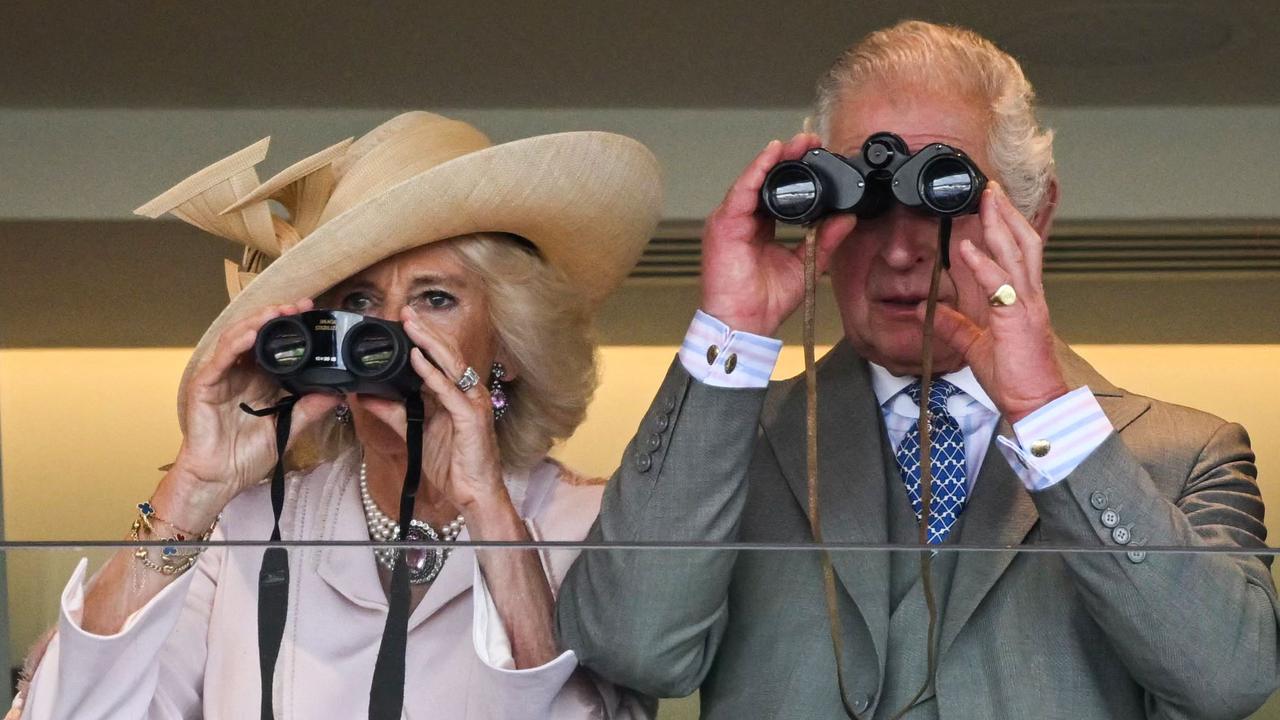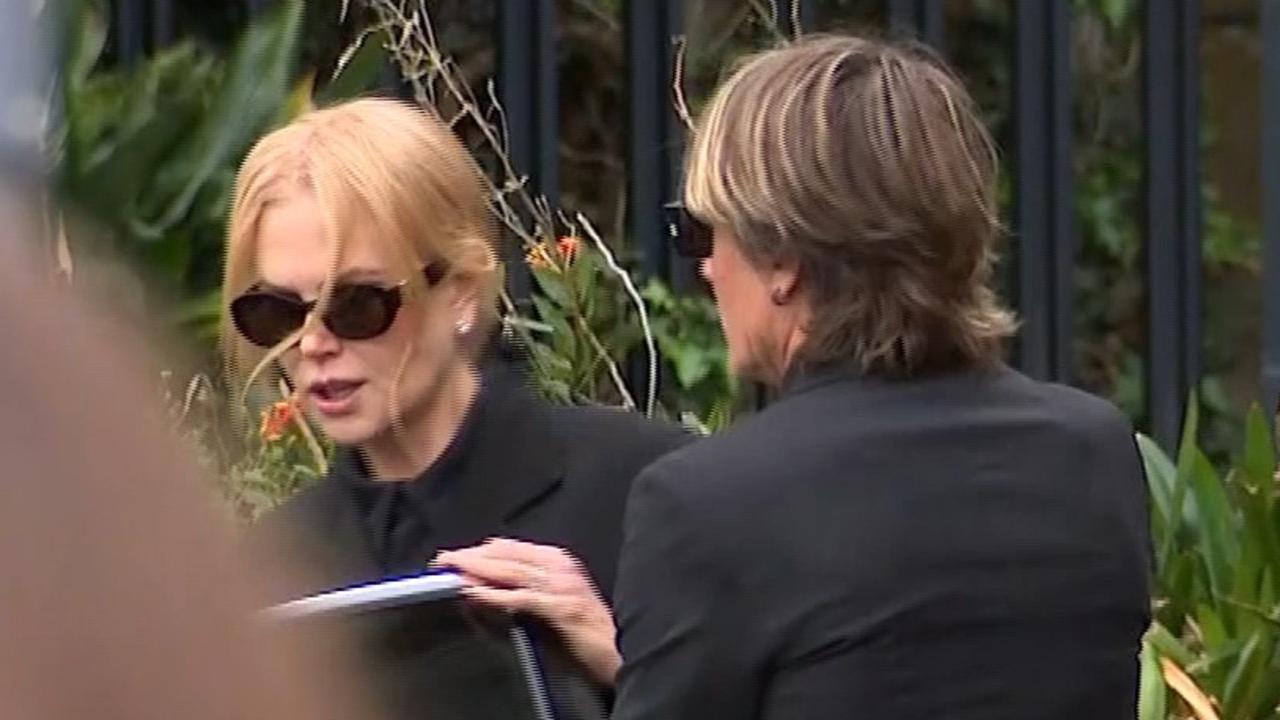What the proposed NSW abortion legislation means for women
Historic legislation to decriminalise abortion in NSW has been introduced to parliament — and if passed it will have a profound impact on women’s reproductive rights.
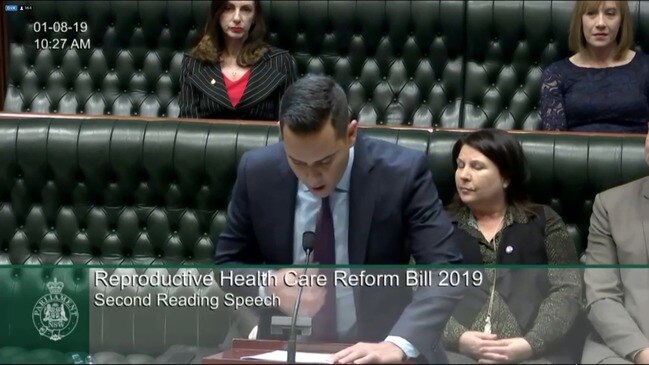
NSW
Don't miss out on the headlines from NSW. Followed categories will be added to My News.
- Joyce uses baby son to slap down NSW abortion bill
- MP’s abortion bill bombshell amid angry party room
Historic legislation to decriminalise abortion in NSW has been introduced to parliament — and if passed it will have a profound impact on women’s reproductive rights.
NSW is the last state in Australia to decriminalise abortion or clarify what constitutes a “lawful” termination, leaving women with fewer rights to reproductive healthcare than their interstate counterparts.
What is the bill?
The Reproductive Health Care Reform Bill 2019 would allow women to request an abortion from a registered doctor up to 22-weeks gestation.
The procedures would still be legal beyond 22-weeks, however women will need the approval of two doctors who will determine whether they have a valid medical reason.
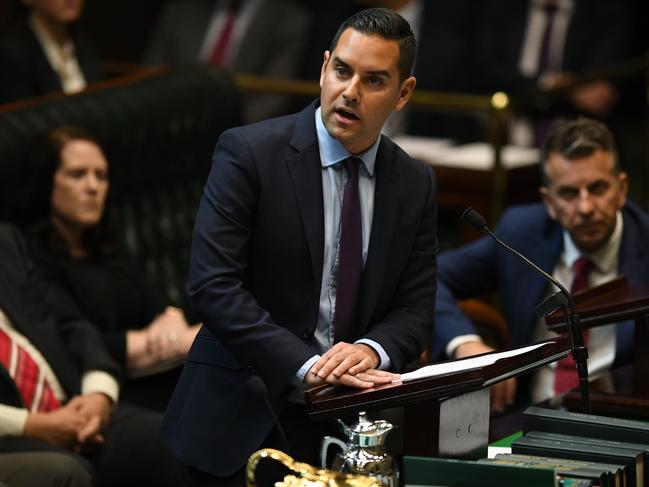
Under the current law, abortions fall under the NSW Crimes Act 1900 which criminalise people who “unlawfully” attempt to procure an abortion by administering drugs or using instruments or other means.
This means women seeking a termination can be prosecuted, as can their doctors or anyone who unlawfully performs an abortion or supplies the necessary tools.
Women who unlawfully procure an abortion face up to 10 years imprisonment while people who assist can be jailed for up to five years.
The proposed reforms would remove abortion from the state’s 119-year-old criminal code and create a new stand-alone healthcare act to regulate the procedure.
It will also make it a criminal offence for a person who is not a doctor to perform or assist in a termination, which will carry a maximum penalty of seven years imprisonment.
Doctors will not be forced to perform terminations if it would conflict with their personal values or beliefs.
However, the bill would create an obligation for them to refer the woman to another doctor who can provide the service.
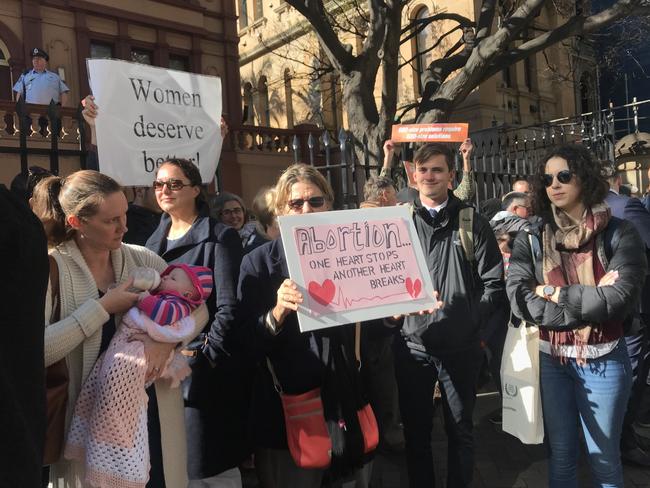
Independent MP Alex Greenwich, who introduced the bill to the lower house today, said the right to conscientious objection was “already provided for” and that this was recognised in the legislation.
Why legislate for abortion up to 22-weeks?
Sometimes foetal abnormalities are not discovered until later in the pregnancy when women undergo a second trimester ultrasound scan — or an “anomaly scan” — around 18-20 weeks.
Family Planning NSW Medical Director Dr Deborah Bateson said legislating for 22-weeks was “crucial” because many of these issues “often cannot be detected earlier”.
“This timing allows pregnant women and medical staff the opportunity to make an informed decision,” she said.
“It is already standard practice for medical practitioners to consult with numerous specialists for abortions at this stage.”
Dr Bateson also said the 22-week suggestion was also in line with abortion legislation in Victoria and Queensland.
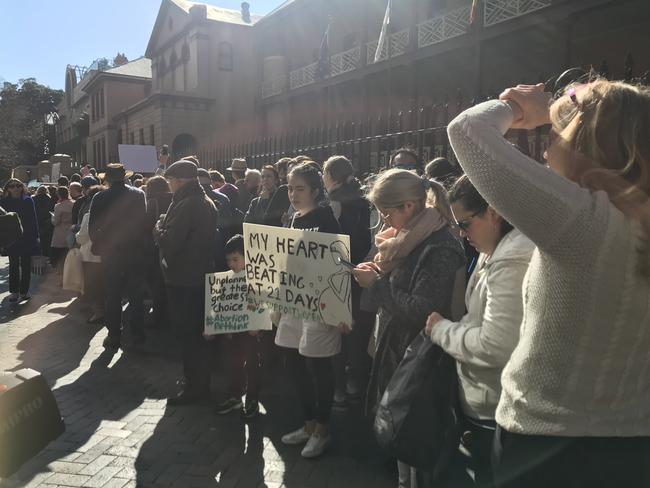
The Queensland government decriminalised abortion last year, allowing women to terminate pregnancies up to 22-weeks gestation.
In Victoria, women can seek an abortion up to 24-weeks.
Dr Bateson said abortions after 20-weeks were “rare and almost always involve complex medical or personal reasons”.
According to NSW Pro-Choice Alliance, 0.7 per cent to 2.8 per cent of abortions occur after 20-weeks gestation.
Most abortions occur in the first trimester with between 91.2 and 95 per cent of abortions taking place before 14-weeks.
How can a woman access an abortion after 22-weeks?
Abortions after 20 weeks only occur in NSW hospitals, where specialists of various disciplines are present to ensure all safety precautions are taken.
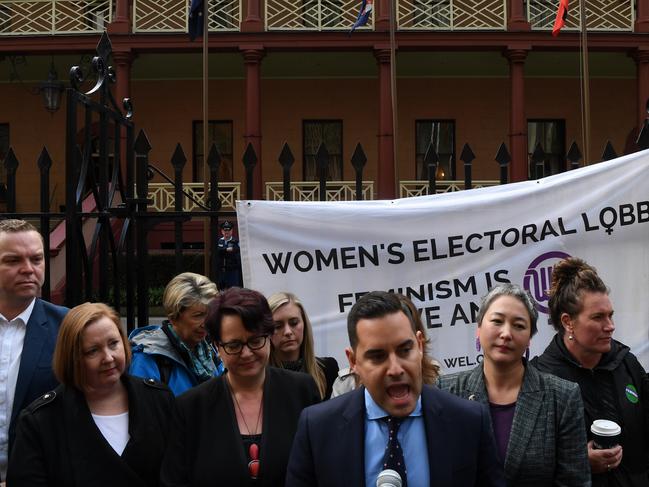
According to the Reproductive Health Care Reform Bill, a registered doctor can perform a termination if they have come to an agreement with another doctor that “in all the circumstances” the procedure should be performed.
This involves looking at the woman’s “current and future physical, psychological and social circumstances”.
But members of the health industry are unsure exactly what this situation would look like because there are so many factors to consider.
Doctors also have to consider the “professional standards and guidelines that apply to the medical practitioner” performing the termination.
How developed is a baby at this point?
At 22-weeks of pregnancy, a baby weighs about 430-grams and measures just over 27-centimetres from the crown to heel, according to information approved by the Medical Advisory Board.
Its lips are distinct and the eyes are formed, and the first signs of teeth may appear in the form of tooth buds beneath the gum line.
It looks like a thinner version of a newborn because baby fat hasn’t yet developed.
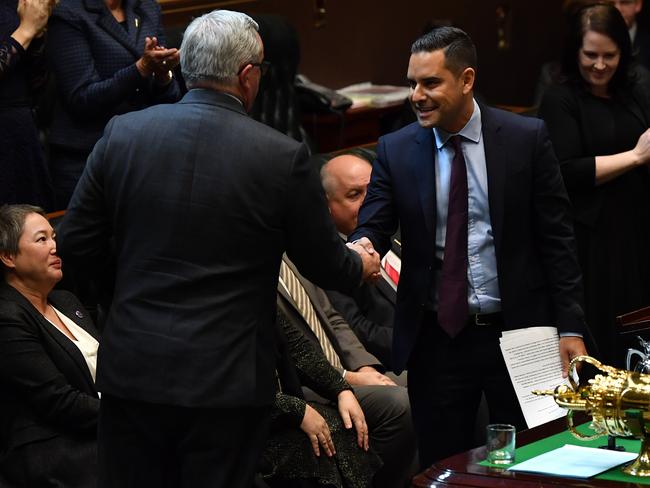
How do abortion procedures work?
There are two types of abortion available in Australia — medical and surgical.
Medical abortion, where a pill is used to terminate a pregnancy, is performed up to nine weeks from the first day of a woman’s last period, according to Family Planning NSW.
A surgical abortion is usually carried out between 7-12 weeks from the first day of a woman’s last period, however services are available up to 18-20 weeks of pregnancy.
Most performed before 12-weeks use “suction (vacuum) aspiration” in a procedure that takes about 15 minutes.
After 12-weeks, the procedure is similar but a woman’s cervix is prepared differently.
Patients may be told to consume hormone-blocking tablets to soften their cervix or use a special device to help widen it.
Who is for/against the new legislation?
The bill has been co-sponsored by 15 MPs from across the political divide and boasts more co-sponsors than any other bill in parliament’s history.
Premier Gladys Berejiklian, Labor leader Jodi McKay and a host of other senior ministers have come out supporting it.
However there is a small group of conservative Liberal MPs who argue it has been rushed through parliament.
They say they want more time to consider the legislation and consult with constituents.
Churches are also strongly opposed to the legislation.
Archbishop of Sydney Reverend Anthony Fisher wrote a letter to Ms Berejiklian warning her the bill is an “attack upon the rights of people of faith”.
Hundreds of people also gathered outside NSW parliament today at an anti-abortion “Rally for Life”.
Originally published as What the proposed NSW abortion legislation means for women

